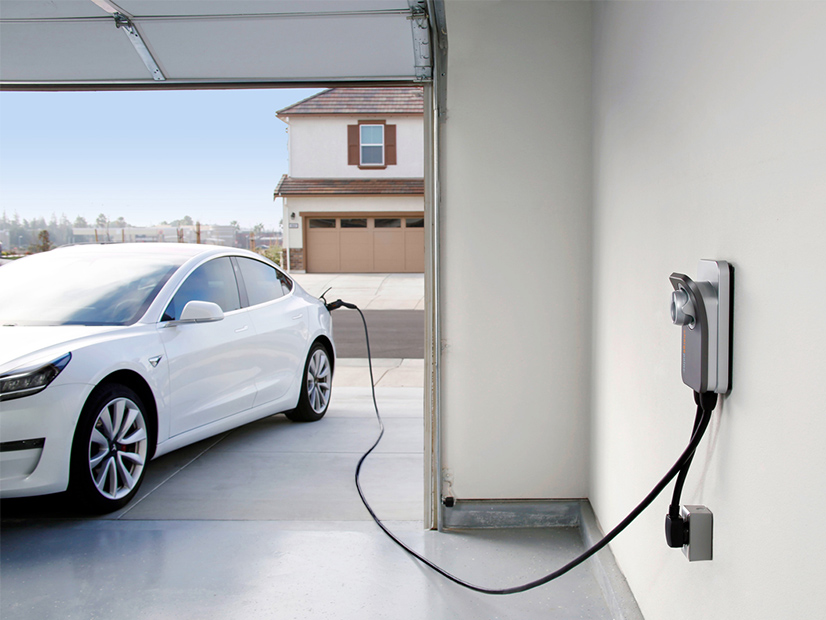Connecticut regulators plan to make a final decision next week on the framework for a comprehensive statewide electric vehicle charger deployment program.
The Public Utilities Regulatory Authority (PURA) issued a proposed final decision for the program on June 9 under the zero-emission vehicles segment of its investigation of distribution system planning (Docket 17-12-03RE04). A vote on the proposed decision is scheduled for PURA’s July 14 regular meeting, Chairman Marissa Gillett said Tuesday during a hearing for oral arguments on the decision.
PURA proposed a nine-year EV charging equipment deployment program starting in January 2022, with reviews every three years. Eversource Energy (NYSE:ES) and United Illuminating (UI) would administer the program for their customers and recover the costs through rates.
As proposed, the program would enable infrastructure deployment to support adoption of 150,000 EVs by 2025 and 500,000 by 2030. By 2030 it aims to deploy 550 DC fast-charger ports and 62,000 level-2 charger ports, with 50,000 slated for residential single-family homes and the remainder directed across residential multifamily, workplace and destination/public segments.
To support charger infrastructure deployments, the utilities would invest in the infrastructure to enable charging while site hosts own and operate the equipment. In addition, Eversource and UI would provide incentives to offset the equipment and installation costs.
Demand Charges
Tesla and ChargePoint expressed concern this week that PURA’s proposed decision does not address billing issues for fast-charger owners in a timely manner.
During proceedings for the program’s development, stakeholders encouraged PURA to address demand charges that are causing high bills for commercial fast chargers, especially ones with low usage in initial deployment.
UI proposed making its small commercial customer rates available to commercial charging customers, but PURA rejected that option and directed the utility to submit a pilot EV rate this fall that mimics one approved for Eversource in 2019.
That option, however, does not provide an immediate-term solution to UI’s customers, Kevin Miller, director of public policy at ChargePoint, said during the hearing.
Accepting UI’s rate proposal also “would put all of Connecticut service territories that are overseen by [PURA] in a position to take advantage of any near-term federal [infrastructure] funding opportunities that may arise out of the 117th Congress,” Miller said.
Tesla agreed that reversing the denial of UI’s rate option would allow the utility to provide “demand charge relief immediately to customers, such as Tesla,” Bicky Corman, an attorney representing Tesla, said during the hearing. The company, she added, also shares UI’s concern that there is no evidence that customers would save more money with Eversource’s pilot rate than with UI’s small commercial customer rates.
That pilot rate, according to the proposed decision, “is based on a per-kilowatt-hour equivalent to the demand charges applicable to Eversource’s general service rate.”
Near-term solutions aside, PURA also proposed directing the utilities to take a year to develop “a more robust and permanent demand charge mitigation solution that reflects an appropriate allocation of distribution system costs.”
That tariff would include:
- a fixed monthly charge;
- on-peak and off-peak kilowatt-hour charges that are higher when a charging station’s load is low and decrease with station usage; and
- kilowatt demand charges that are lower when a charging station’s load is low and increase with station usage.
The utilities would submit new tariffs for approval in August 2022.
Managed and Networked
In its proposal, PURA determined that residential and commercial chargers installed with an incentive from the program should be automatically enrolled in a managed charging program to optimize the distribution system. It also found, however, that implementing managed charging “introduces complex dynamics” that are not addressed in the docket to date.
To help with managed charging design, PURA proposed directing the utilities to initiate a working group on the subject in August, with a target program launch in January 2022. The working group would determine, among other things, program price signals for users.
Based on stakeholder input, PURA also determined that all chargers installed under the program should have networked charging capabilities. In addition, it said that deployment of statewide EV charging infrastructure requires examination of interoperability relating to open access, payments and network communications.
PURA expects to release a report on interoperability issues relating to EV charging this fall.



